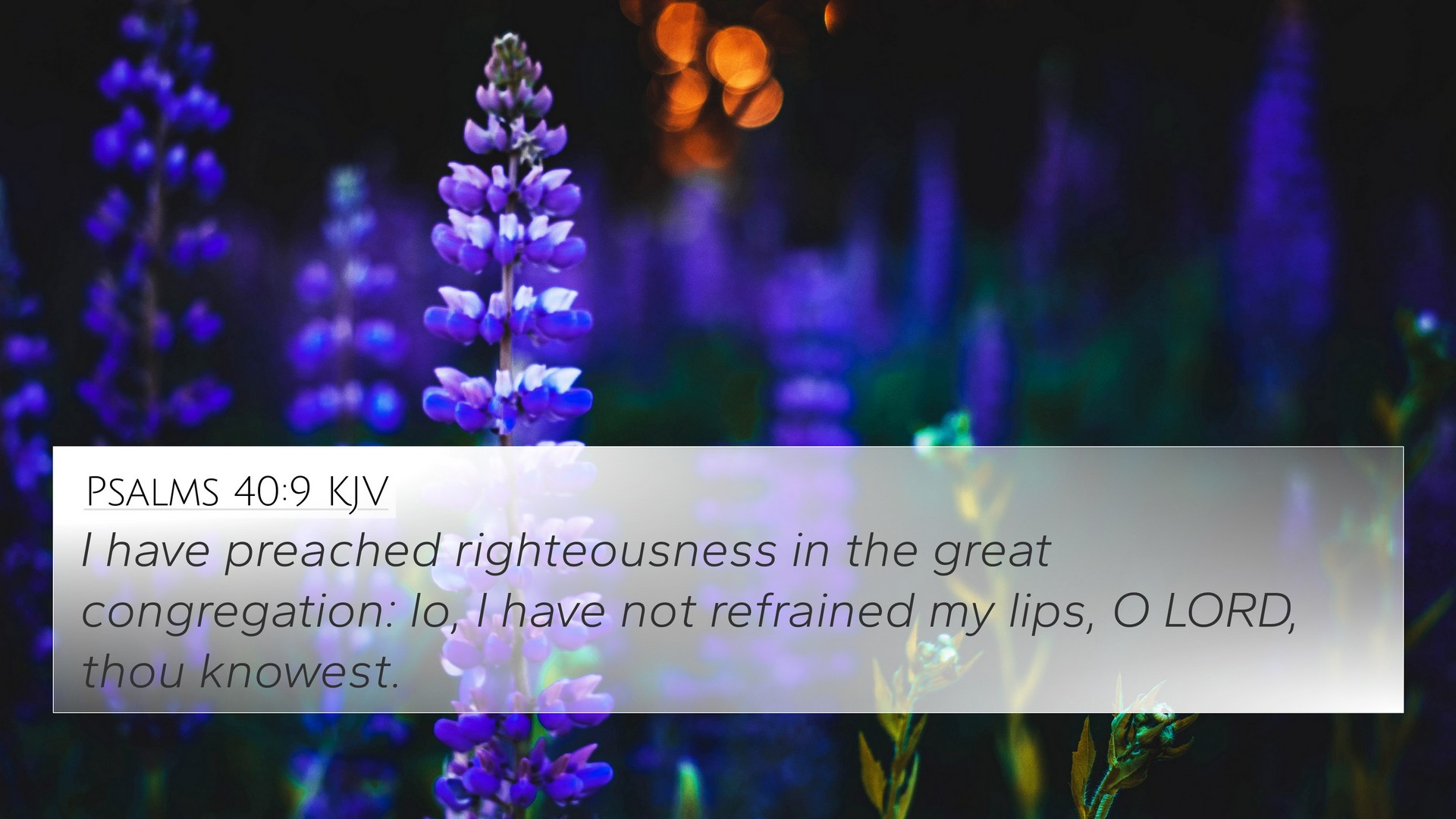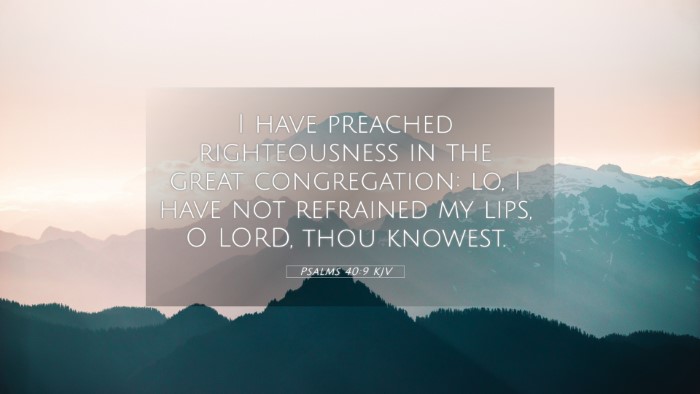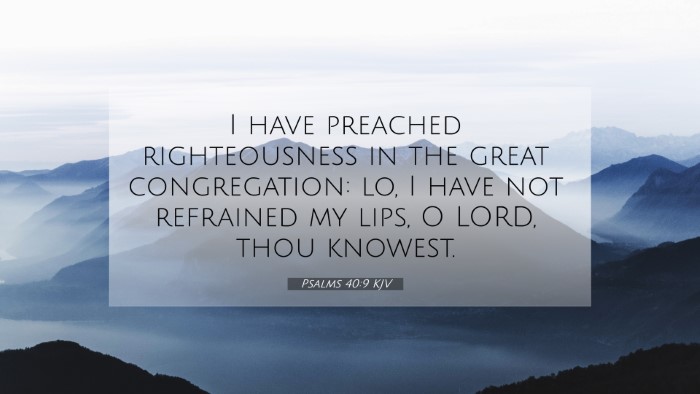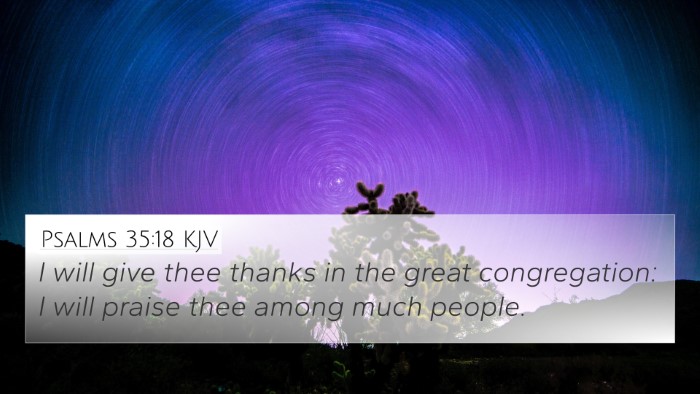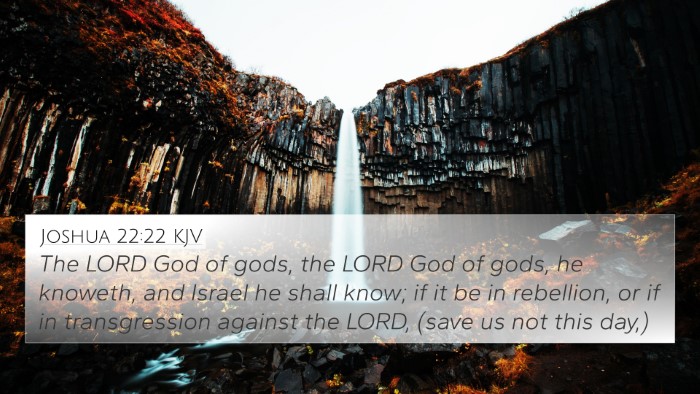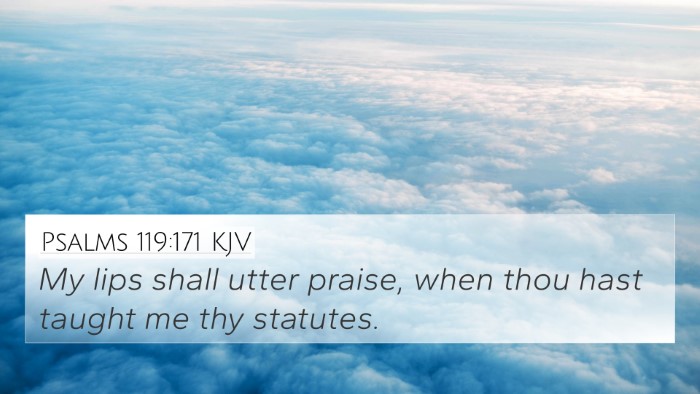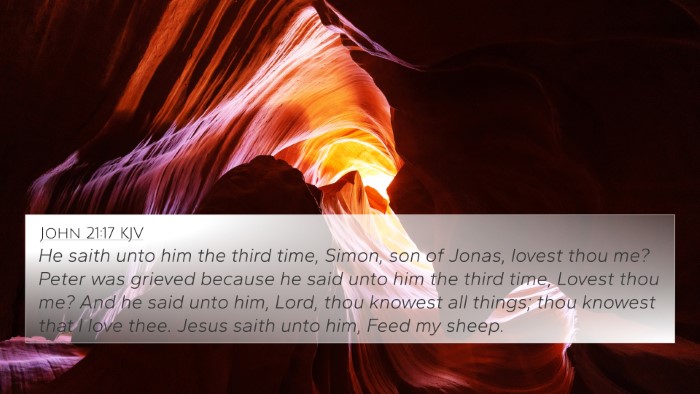Understanding Psalms 40:9
Bible Verse: Psalms 40:9 - "I have proclaimed the good news of righteousness in the great assembly; I do not seal my lips, Lord, as you know."
Summary of the Verse
This verse expresses the psalmist's commitment to proclaiming God's righteousness openly and without reservation. It acknowledges a responsibility to share the message of salvation and God's justice among the people.
Interpretation from Commentaries
-
Matthew Henry:
Henry emphasizes the importance of public proclamation of faith. He notes that the psalmist does not shy away from declaring God's truths, understanding that such declarations are vital for both personal faith and community enlightenment.
-
Albert Barnes:
Barnes highlights the theme of witness. He interprets the "great assembly" as a gathering where public expression of faith is crucial. The psalmist's determination to speak aloud about righteousness showcases the need for believers to share their faith in communal settings.
-
Adam Clarke:
Clarke regards this verse as a testimony to the psalmist's dedication. He points out that the absence of silence in sharing God's works is significant. The psalmist’s willingness to express truths reflects the larger call for evangelism within the faith community.
Key Themes and Concepts
Several key themes arise from Psalms 40:9:
- Public Faith: The necessity of sharing one's faith publicly is vital for encouragement and growth within the community.
- Righteousness: The psalmist’s focus on righteousness signifies the moral and ethical standards that believers are called to uphold.
- Witness: The active role of a believer in being a witness for God’s kingdom is emphasized, illustrating how evangelism plays into the Christian life.
Cross-References
This verse connects to several other scriptures that reflect similar themes:
- Matthew 5:14-16: This passage stresses letting one's light shine before others, paralleling the idea of public proclamation.
- Romans 1:16: The apostle Paul declares he is not ashamed of the gospel, reinforcing the spirit of openness that the psalmist portrays.
- 2 Timothy 1:8: Paul encourages Timothy to not be ashamed of the testimony of Christ, mirroring the commitment found in Psalms 40:9.
- Acts 4:20: The apostles declare they cannot help but speak about what they have seen and heard, reflecting similar dedication to public witnessing.
- Isaiah 61:1: The proclamation of good news is noted here, aligning with the psalmist’s mission of sharing divine truth.
- Psalm 51:13: The psalmist commits to teaching transgressors God’s ways, which ties directly to the concept of witness.
- 1 Peter 2:9: Believers are called a royal priesthood and a holy nation to proclaim the excellencies of God, supporting public testimony.
- John 3:30: John the Baptist states that he must decrease so Christ can increase, alluding to the act of testifying to righteousness.
- Hebrews 10:23: Holding unswervingly to hope and confession signifies the ongoing duty to profess faith openly.
- Colossians 3:16: Teaching and admonishing one another with songs and spiritual hymns suggests active sharing of faith within the community.
Conclusion
Psalms 40:9 serves as a pivotal reminder for believers about the importance of public faith and testimony. The psalmist's declaration elucidates the broader Christian responsibility to proclaim righteousness boldly within the community context. By examining similar passages through cross-referencing, we can gain a holistic understanding of the theme of public proclamation in the Bible.
Exploring Cross-Referencing Methods
Using cross-referencing tools can enhance our understanding of Psalms 40:9 by revealing how various scriptures relate to one another, contributing to a deeper biblical insight. Various Bible concordance systems allow for easy reference and can guide personal study, sermon preparation, or thematic explorations within the scriptures.
